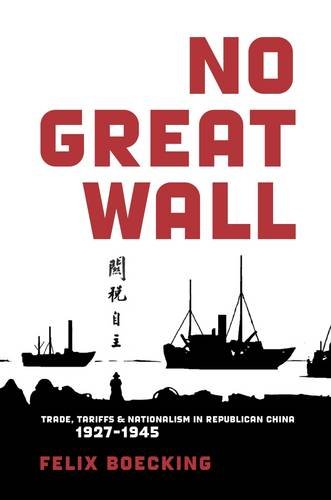

Most ebook files are in PDF format, so you can easily read them using various software such as Foxit Reader or directly on the Google Chrome browser.
Some ebook files are released by publishers in other formats such as .awz, .mobi, .epub, .fb2, etc. You may need to install specific software to read these formats on mobile/PC, such as Calibre.
Please read the tutorial at this link: https://ebookbell.com/faq
We offer FREE conversion to the popular formats you request; however, this may take some time. Therefore, right after payment, please email us, and we will try to provide the service as quickly as possible.
For some exceptional file formats or broken links (if any), please refrain from opening any disputes. Instead, email us first, and we will try to assist within a maximum of 6 hours.
EbookBell Team

5.0
30 reviewsThis book, an in-depth study of Nationalist tariff policy, fundamentally challenges the widely accepted idea that the key to the Communist seizure of power in China lay in the incompetence of Chiang Kai-shek’s Nationalist government. It argues instead that during the second Sino-Japanese War, China’s international trade, the Nationalist government’s tariff revenues, and hence its fiscal policy and state-making project all collapsed.
Because tariffs on China’s international trade produced the single greatest share of central government revenue during the Nanjing decade, the political existence of the Nationalist government depended on tariff revenue. Therefore, Chinese economic nationalism, both at the official and popular levels, had to be managed carefully so as not to jeopardize the Nationalist government’s income. Until the outbreak of war in 1937, the Nationalists’ management of international trade and China’s government finances was largely successful in terms of producing increasing and sustainable revenues. Within the first year of war, however, the Nationalists lost territories producing 80 percent of tariff revenue. Hence, government revenue declined just as war-related expenditure increased, and the Nationalist government had to resort to more rapacious forms of revenue extraction―a decision that had disastrous consequences for both its finances and its political viability.